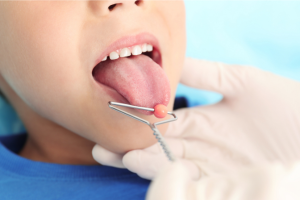Speech and Language Disorders

Speech and Language Disorders: Understanding and Addressing Communication Challenges
At Manoshanti Neuropsychiatry Clinic, we understand how vital communication is to daily life. Speech and language disorders can affect children and adults, making it difficult to express themselves, understand others, or interact socially. With timely intervention and tailored therapies, individuals with these challenges can improve their communication skills and enhance their quality of life.
What Are Speech and Language Disorders?
Speech and language disorders encompass a wide range of difficulties related to producing sounds, understanding language, or using it effectively. These challenges may arise due to developmental delays, neurological conditions, or other underlying factors.
- Speech Disorders: Affect the physical ability to produce sounds or speak fluently.
- Language Disorders: Impair the ability to understand or use words to communicate.
Common Speech Disorders
- Articulation Disorders
- Difficulty pronouncing sounds correctly.
- Example: Saying “wabbit” instead of “rabbit.”
- Fluency Disorders
- Problems with the flow of speech, such as stuttering.
- Symptoms include repetition of sounds, prolonged sounds, or pauses.
- Voice Disorders
- Abnormal pitch, volume, or quality of voice.
- Causes include vocal cord damage, nodules, or strain.
Common Language Disorders
- Receptive Language Disorder
- Difficulty understanding what others are saying.
- Example: Trouble following instructions or answering questions.
- Expressive Language Disorder
- Challenges in expressing thoughts, ideas, or needs.
- Symptoms include limited vocabulary or difficulty forming sentences.
- Social Communication Disorder
- Difficulty using language appropriately in social contexts.
- Examples include trouble understanding social cues or taking turns in conversation.
Signs and Symptoms of Speech and Language Disorders
In Children:
- Delayed speech or difficulty forming words.
- Struggles with following instructions.
- Limited vocabulary for their age.
- Difficulty interacting socially or playing with peers.
In Adults:
- Trouble finding the right words.
- Slurred or unclear speech.
- Difficulty understanding conversations.
- Changes in voice or speech patterns.
Causes of Speech and Language Disorders
- Developmental Delays: Common in young children with speech milestones lagging behind.
- Neurological Conditions: Such as stroke, traumatic brain injury, or cerebral palsy.
- Hearing Impairment: Can hinder speech and language development.
- Autism Spectrum Disorder (ASD): Often associated with social and communication challenges.
- Genetic Factors: Family history of speech or language difficulties.
- Environmental Factors: Limited exposure to language or emotional trauma.
Diagnosis at Manoshanti Neuropsychiatry Clinic
Our comprehensive diagnostic approach includes:
- Speech and Language Assessments: Evaluating articulation, fluency, comprehension, and expression.
- Hearing Evaluations: To rule out auditory issues.
- Parent/Caregiver Interviews: Understanding developmental history and challenges.
- Standardized Tests: To pinpoint specific difficulties and determine the severity.
Treatment Options for Speech and Language Disorders
- Speech Therapy
Tailored exercises to improve articulation, fluency, and voice modulation. - Language Therapy
Techniques to enhance understanding, vocabulary, and sentence formation. - Augmentative and Alternative Communication (AAC)
For individuals with severe speech difficulties, tools like picture boards or speech-generating devices may be used. - Social Skills Training
For children and adults with social communication challenges, teaching effective interaction strategies. - Parent and Caregiver Guidance
Empowering families with strategies to support communication at home.
Importance of Early Intervention
For children, early diagnosis and therapy are crucial for catching up with developmental milestones. For adults, timely intervention can restore lost communication skills and prevent further decline.
Benefits of early intervention include:
- Improved academic and social performance in children.
- Enhanced confidence and self-esteem.
- Better relationships and interactions in all age groups.
Why Choose Manoshanti Neuropsychiatry Clinic?
- Expert Speech-Language Pathologists: Skilled in assessing and treating a wide range of speech and language challenges.
- Comprehensive Care: Collaborative approach involving therapists, doctors, and caregivers.
- Personalized Treatment Plans: Tailored to each individual’s unique needs.
- Supportive Environment: Encouraging and inclusive setting for effective therapy.
Helping Individuals Communicate Confidently
At Manoshanti Neuropsychiatry Clinic, we believe that everyone deserves the ability to communicate effectively. Our team is dedicated to helping individuals overcome their speech and language challenges, empowering them to express themselves and connect with the world.
If you or a loved one is struggling with speech or language issues, don’t wait. Contact us today to schedule an evaluation and begin the journey toward improved communication. Together, we can help unlock the power of words.
